In the midst of the Black Lives Matter movement and the ongoing fight for racial justice, conversations about diversity, equity, and inclusion have become more critical than ever. Throughout the semester, students, alumni, staff and faculty from the School of Professional Studies have written blogs that share their own experiences and thoughts on the matter.
Here you can find all of the diversity, equity, and inclusion blogs written this past semester.
Talking About Race
Beth Fisher-Yoshida
Faculty, Negotiation and Conflict Resolution
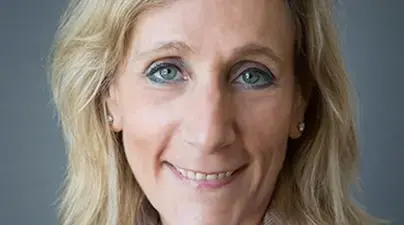
“The streets were erupting in protests after police killed George Floyd on May 25th. After years of racial injustice with too many African-Americans killed by police and almost three months of lockdown due to the COVID-19 pandemic, people of many ages, races and ethnicities were in the streets all united behind the belief that something has to change.
The Negotiation and Conflict Resolution (NECR) program community was grieving these losses and individually watching and participating in the mostly peaceful protests….”
Read Beth Fisher-Yoshida’s full article here.
Let's Be Honest! They Didn’t Care about Racial Justice Until it was Popular
Perrin Kennedy
Student, M.S. in Nonprofit Management; HBCU Fellow
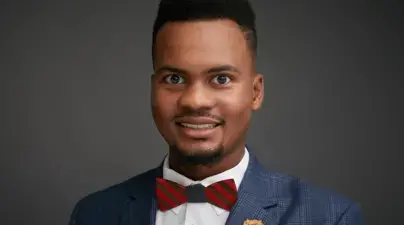
“On May 25, 2020, we all witnessed the death of George Floyd at the hands of the police. Americans took to the streets in protest and politicians and corporations took notice.
In June, House Democrats introduced the Justice in Policing Act and Senate Republicans introduced the Justice Act. Both pieces of legislation were supposed to be a signal that Congress was finally making progress on addressing police brutality. Fast forward to the present day, neither piece of legislation passed and isn’t talked about anymore.
Likewise, around the same period, companies began to speak out about racial injustice and inequalities and shared their opinions on social media. While some companies have a longstanding tradition of supporting racial equality, others like Target, Walmart, and Home Depot appear to have just jumped on the bandwagon (Livingston, 2020). My question for those latecomers: Why now when systemic injustices have always plagued America?...”
Read Perrin Kennedy’s full article here.
Engaging Business Leaders in Diversity Learning Strategy
Sara Daly-Padron
Lecturer, Human Capital Management
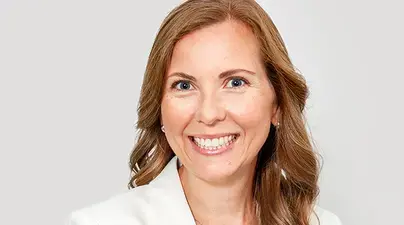
“In September, Sara Daly-Padron's Organizational Strategy & Learning class was joined by award-winning author and DEI thought leader Jennifer Brown for a discussion on how to engage business leaders in diversity learning strategy. Jennifer's work in talent management, human capital, and intersectional theory has redefined the boundaries of talent potential and company culture. Jen highlighted keys to aligning learning with strategy and spoke about key skills for success as HR Strategists….”
Read Sara Daly-Padron’s full article here.
Faculty Affairs’ Commitment to Diversity, Equity, and Inclusion
Jennifer Goez
Senior Director of Faculty Recruitment and Community Strategy
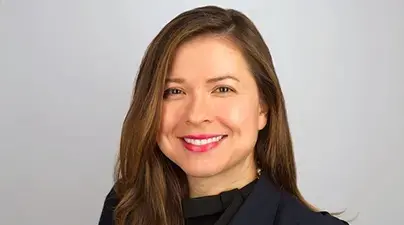
“Last month, the School of Professional Studies' Faculty Diversity, Equity, and Inclusion Committee held its first meeting after a journey that began in late 2019 when the Office of Faculty Affairs started discussions with the Office of the Vice Provost for Faculty Advancement. With their support, we have achieved initial goals in developing an SPS Faculty Diversity, Equity, and Inclusion (DEI) strategy.”
Read Jennifer Goez’s full article here.
A Black and Tamil Woman is the Kind of Power We Need
Shara Santan
Student, M.S. in Strategic Communication
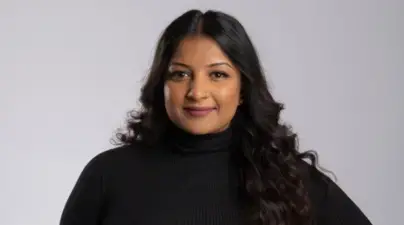
“On November 7, 2020, the world watched the first-ever female, Black and Tamil Vice President-elect of the United States of America, Kamala Devi Harris, give her victory speech. Yes, I said Tamil and not Asian, South Asian or Indian. And here’s why.
First and foremost, because Kamala Harris is Tamil. So, why not?
But besides that not-so-obvious fact, let me give you a breakdown of why it is important to distinctly acknowledge her Tamil identity that is seldom mentioned in mainstream media….”
Read Shara Santan’s full article here.
Remembering the Honorable David Dinkins
Steve Cohen
Vice Dean, Columbia University School of Professional Studies
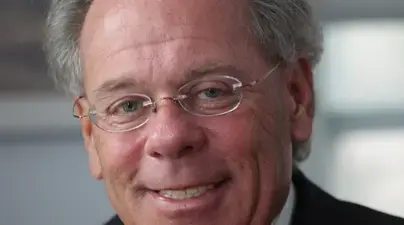
A few weeks after Mayor Dinkins lost his bid for reelection in late 1993, Dean John Ruggie of Columbia’s School of International Affairs and I shared breakfast with the mayor and (as he would say) “his bride” Joyce as part of Columbia’s effort to recruit Mayor Dinkins to our faculty. After we made our pitch, the mayor turned to Joyce and observed that soon he “would be unemployed and [they] would also be losing their public housing,” and he was inclined to accept our offer. David Dinkins’ warmth, humor and pragmatism were key elements of his charm and were a gift to those of us lucky to know him.
After he moved into his office on the 14th floor of Columbia’s International Affairs building, I worked with him to develop the two classes he would teach. Both were designed to take advantage of his unique experiences and singular ability. The first was a class where each week a very prominent guest speaker would lecture and engage in a discussion that the mayor would lead on critical issues in urban policy. When we were working on the syllabus, I asked him if there was anyone in New York City who would refuse an invitation to speak in his class. He thought there might be a few, but over the past quarter-century very few turned down an opportunity to speak in his class, and each year I looked forward to my guest spot at his lectern….”
Read Steve Cohen’s full article here.
Recognizing My Privilege (And No, I’m Not White)
La-Verna Fountain
Lecturer; President and Founder, Meaningful Communications Matter
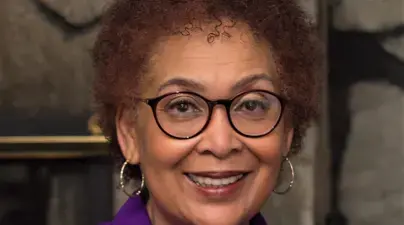
“January 1, 2021 can’t come soon enough for me. And I hear a chorus of “Amens” and “That’s Right” and “Please” echoing that sentiment. The combination of coronavirus isolation, sickness and death, continued killings of Black and Brown people, harassment of Asian folks, a contentious election that brought out the worst in family, friends, neighbors and strangers, Black Lives Matter, Blue Lives Matter, All Lives Matter movements, a rise in White supremacy groups and soaring unemployment has taken its toll. And yet even as I reflect on all of it and the stress that has taken up residency in my home, I am aware of the safety nets that I am privileged to have. As a person of color, I “count my blessings” as my mother used to say. It was one of her survival techniques and I made it mine, too….”
Read the rest of La-Verna Fountain’s article here.
DEI Up Close
Edna Chun
Lecturer of Human Capital Management
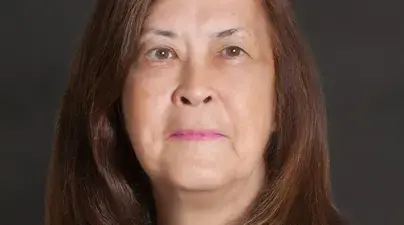
“During the course of this semester, in the face of challenges to diversity training due to the Executive Order on combating race and sex stereotypes issued by Donald Trump on September 22, our graduate Effective Partnership Strategies (EPS) class in Human Capital Management benefited from the courageous insights of institutional leaders wrestling with the implications of the order. The Executive Order bans diversity training by federal contractors and agencies using “divisive concepts” such as the “the pernicious and false belief that America is an irredeemably racist and sexist country” or that individuals can consciously or implicitly act in racist or sexist ways. According to the Office of Management and Budget, trainings that discuss critical race theory, white privilege, and unconscious bias could be subject to investigation. In fact, a hotline was created for reporting “violations” of the Executive Order that by the end of October had received 140 calls….”
Read the rest of Edna Chun’s article here.
Advancing DEI Programming in the M.S. in Sports Management
Scott Rosner
Professor of Professional Practice; Academic Director, M.S., in Sports Management Program, School of Professional Studies
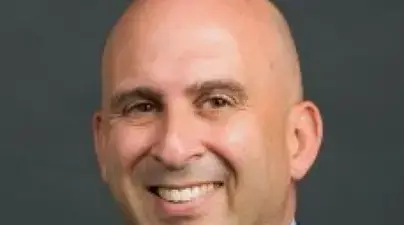
“Student anxiety in our Columbia Sports Management program was understandably high throughout the spring due to COVID-19, but reached an entirely different level during the nationwide protests against racial injustice fueled by the murder of George Floyd. Like the city in which we are based, our program is a melting pot of different races and other intersectional identities. Black students comprise approximately 15% of our population. The tenets of over-communication, availability, transparency and empathy guided our response. I spoke with every Black student and a number of our other students (many on multiple occasions) to check in on their well-being and to solicit their ideas on potential programmatic changes. I similarly connected with every Black member of our faculty and staff. None of these conversations was easy, many were hard and all were emotional. A lengthy, heartfelt letter to our community was crafted - though I did call on my own network of Black friends and colleagues to serve as a sounding board as I wrote it. (Though their feedback as to its content and sentiment was de Minimis, all praised me for reaching out before sending it. It is a good reminder of the importance and value of having a diversity of perspectives on your internal Board of Directors – and in your organization.)...”
Read the rest of Scott Rosner’s article here.
Introducing a Support System for Indian Students at Columbia
Kritika Mahanti
Student, M.S. in Strategic Communications
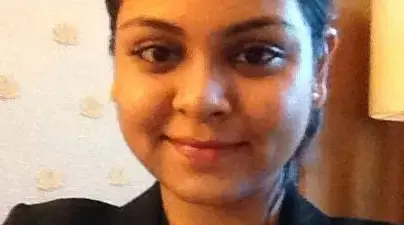
“At the Indian Student’s Association at Columbia, our goal is to build a community and foster growth and brotherhood amongst Indian students in the University. Being a part of ISAC’s core committee has given me the opportunity to introduce and implement a new initiative that helps support and assist Indian students with their academic and extra-curricular journey at Columbia.
For many of us, moving to a new country and destination can be a difficult transition to adapt to, but seeking assistance from peers can help ease the process and provide comfort in times of need. ISAC has been committed to building a strong community of students, and this year we have gone further to welcome volunteers from countries like Mauritius that have a large Indian diaspora and share a history of close social-cultural ties with India….”
Read the rest of Kritika Mahanti’s article here
The views expressed are those of the author and do not necessarily represent the views of any other person or entity.